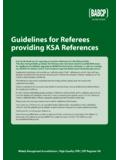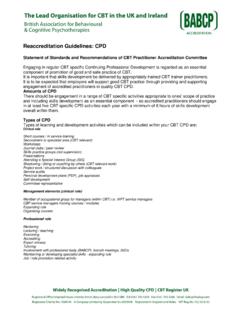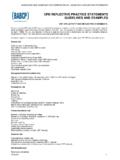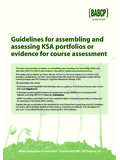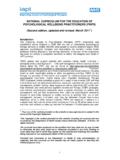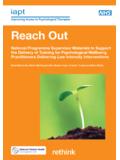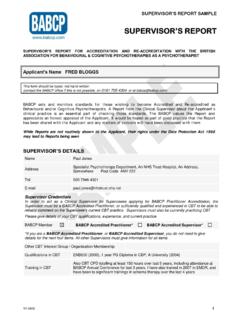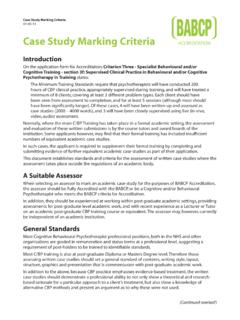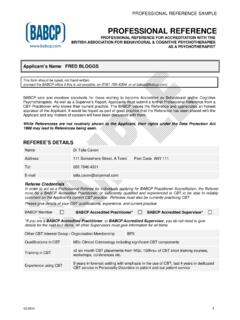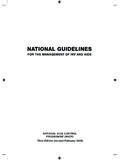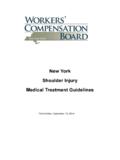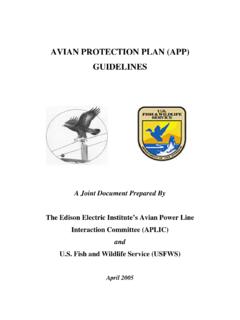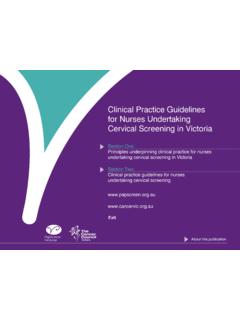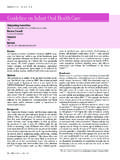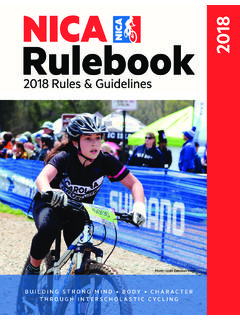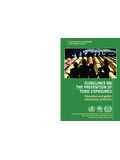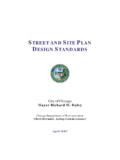Transcription of Close Supervision Guidelines - BABCP
1 V2-071015 1 Close Supervision Guidelines Introduction This document is produced as a guide for those providing Close Supervision to be used as evidence for the purposes of Provisional Accreditation. This will generally be CBT practice supervisors of those who are completing, or have recently completed a Post Graduate Diploma level training in CBT or equivalent, yet have a shortfall in the required number of closely supervised cases required to meet the BABCP Minimum Training Standards (MTS). A Suitable Supervisor Supervisors will be BABCP Accredited practitioners or able to evidence a high level of CBT qualification and experience to Post Graduate Diploma level or equivalent. Assessing live/in vivo practice Closely supervised case work does not have to be assessed to an academic standard in the same way as written work. However in order to count as having been closely supervised, the case work should be formally sampled using in-vivo, video or audio recording.
2 Three closely supervised practice cases are needed to meet the Minimum Training Standards for Accreditation. At least one whole session needs to have been seen for each of these, and assessed to be of a reasonable standard as evaluated by a recognised CBT skills assessment scale and manual. Two examples are as follows; 1. The Cognitive Therapy Scale Revised (CTS-R). 2. Assessment of Core CBT Skills (ACCS). Supervisors may also wish to consider negotiating with applicants about closely supervising more recordings of live work than are needed just to meet the minimum requirement. Each case should also have been taken to Supervision over several sessions, with the Supervision having been delivered in either an individual or group format. V2-071015 2 The CTS-R Manual states the following; The CTS-R manual uses the Dreyfus Scale of Competence (Dreyfus 1989) and the Cognitive Cycle (Newcastle Cognitive Therapy Centre 2001) to underpin the assessment of clinical competence demonstrated in the three closely supervised cases.
3 A standard of competence has been set using the guidance below, from the NCTC to meet the MTS standard for closely supervised live/in vivo practice assessment. Maximum score on the scale is 72 (12 x 6). At the Newcastle Cognitive Therapy Centre we set a minimum competence standard of 36 This is a minimum of three marks per item. (CTS-R Manual 2001) The ACCS manual states the following; Minimum Competence Score A minimum total score above which a therapist can be considered competent has not been provided for the ACCS. This is because further research is required to establish an empirically proven tipping point for competence using the ACCS. Furthermore, the level of competence and thus the score on the ACCS that is required may vary according to the context and purpose of the assessment. For example, when determining whether candidates are suitable for inclusion on a CBT training course, a lower level of performance may be acceptable, whereas those seeking accreditation may be required to demonstrate a higher level of performance.
4 However, the total score which a therapist would achieve if their performance was consistently rated as 1, 2, 3, or 4 is provided to aid in interpretation of the total score: One-limited = total score of 22, Two-basic = total score of 44, Three-good = total score of 66, Four-advanced = total score of 88. The average item score also provides an indication of the therapist s average performance. (ACCS Manual Page 4, July 2014). Objective Assessment- Further Advice Supervisors should be aware of factors which may influence the degree of objectivity they are able to bring to bear on the closely assessed work. This includes factors such as familiarity, non-academic contexts, or other co-existing professional relationships with the applicant, for example. V2-071015 3 Where supervisors are not operating within an academic framework involving moderation and external examination, a second supervisor could be utilised independently to second mark recorded sessions.
5 Permission from the Applicant and appropriate written consent from the client concerned is required. The Supervisor who is assessing the closely supervised work will generally be the same person who is completing the Supervision report for the applicant but this can be varied in the interest of objectivity as mentioned above. The Supervision report nevertheless asks whether live/in vivo Supervision has been conducted and assessed and whether an assessment tool is used routinely in Supervision , since this is also a requirement.
